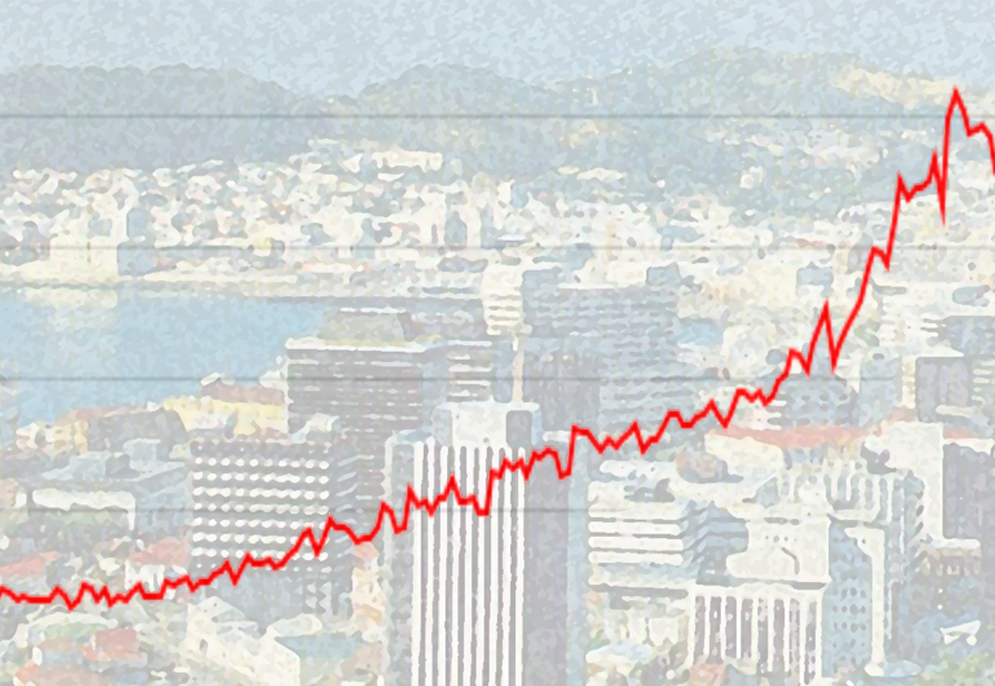
How Far Would House Prices Need To Fall For Young People Today To Have It As Good As The Boomers Did?
Written by Vince McLeod
Boomers have been denying it for years, but young people all over the West have now caught on: the Boomers had it much, much better than young people today. Measuring exactly how much better is hard, but we can guess by comparing how much saved labour Boomers needed to buy a house to how much saved labour younger generations need. Armed with the Reserve Bank’s Inflation Calculator, we can make some educated guesses.
If the last Boomers were born in 1963, graduated high school, then went to university or did a trade apprenticeship, they would have hit the job market – and started looking for a home to raise a family in – in about 1984. Any Boomers older than this would have had an even easier time. So we will compare the house-buying power of a young adult in 1984 with that of a young adult in 2022.
According to qv.co.nz, the average New Zealand house price in October 2022 was $951,040. The Reserve Bank calculator tells us that housing worth $951,040 in October 2022 would be worth $61,854.79 in the first quarter of 1984.
According to the Government’s NZ History page, the average weekly wage in 1984 was $285. This suggests that the average house price was about 217 times the average weekly wage in 1984. In other words, Boomers had to save about 217 weeks’ worth of wages in order to afford the average house.
According to the wage and salary guide at jobted.nz, the average weekly wage in New Zealand in 2022 was $1,093. So the average house price today is about 870 times the average weekly wage. This means that it’s over four times harder for young people today to buy a home they can raise a family in, when compared to Boomers.
The official narrative is that we need to grow wages if we want to bring back the living standards that our parents enjoyed. But there will never be enough wage inflation to bring today’s worker back to that level of prosperity. Our wages would have to quadruple while house prices remained the same. Therefore, if we are to ever enjoy that standard of living ourselves, we have to hope for a house price collapse.
A return to an average house price that was 217 times the average weekly wage would require a fall of 75.1% from current values. This means a fall from around $951,040 to around $236,809. Note that this would not mean that young people today had a better standard of living than the Boomers – it would merely mean that they would have an equal one.
An average house price of $236,809 seems fantastical to young people today.
It’s incredible how much easier life would be for young people in 2022 if the average house cost less than a quarter of a million. It would mean an end to the mortgage slavery that is strangling the West. It would mean that thousands of hours of labour per mortgage holder, currently getting sucked into bank profits, could be redirected to the benefit of families and communities.
That is also why we can’t expect it to happen – there is nothing more profitable than human misery, and mortgage slavery is one of the prime examples of that in the world today. The more expensive houses are, the more human life-energy the owners of those houses can absorb from the lower classes in exchange for them. So the ruling class is not likely to change anything anytime soon.
Therefore, the best young Kiwis can hope for, if they want to ever have the same standard of living that the Boomers had, is a house price collapse of at least 75%. The mainstream media will tell us that we’re not allowed to hope for that, because it would mean the destruction of the New Zealand economy. But the status quo is our effective financial enslavement. Something has to give.
For more of Vince McLeod’s thoughts on politics and psychology, you can get a compilation of the Best VJMP Essays and Articles from 2021 from Amazon as a Kindle ebook or paperback.
-
-
Thursday - December 1, 2022 - Economy
(13) - New Zealand
(125)




Leave a Comment